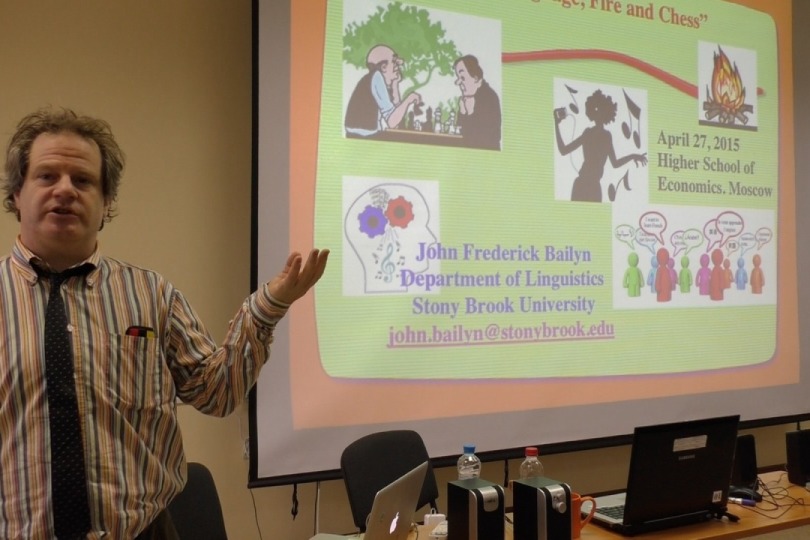Lecture ‘Language, Fire, Music and Chess: Thoughts on the Evolution and Acquisition of Cognitive Systems’ by John Bailyn

Abstract:
In his influential 2006 book Music, Language and the Brain, Patel makes the unexpected constructivist claim that “there is no compelling evidence that music represents an evolutionary adaptation.” Rather, Patel compares the universality of music across all human cultures to that of the ability to use fire, which all human cultures also share, but which in and of itself not an evolutionary adaptation. He also compares the cognitive complexity of music to chess playing, which is “a complex cognitive ability that is unique to our species, but which has not been the target of natural selection.” Patel’s constructivist claim about music evolution is all the more startling when taken in contrast to his strongly adaptionist view of the evolution of language: he provides “10 lines of evidence that I find … most compelling in favor of a direct role for natural selection in the evolution of language” and then attempts to refute such evidence for music.
In the first part of this talk, I present arguments for the biological basis of human linguistic and musical cognition by examining evidence for “mental modularity” (Fodor 1983). Then I examine Patel’s claimed and implied distinctions between language and music, and show that in every relevant aspect, music shares the properties attributed to language and does not in fact have the expected properties of cultural inventions such as fire or chess. In the third part, I provide a plausible co-evolution story for language and music based in part on Mithen (2006), which can help resolve the paradox of Patel’s position, by explaining both the strong similarities and the salient differences between the two systems.
Video of the lecture (Youtube).